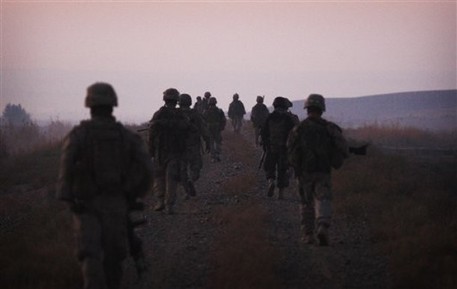The Good, the Bad and the Central

Max Boot discusses Yemen and its place in the greater War on Terror:
We cannot ignore the terrorist threat emanating from Yemen or other states but nor should we use this undoubted danger as an excuse to lose the war of the moment–the one NATO troops are fighting in Afghanistan. Winning the “war on terror” will require prevailing on multiple battlefields–Iraq, Afghanistan, Pakistan, Yemen, Somalia, the Philippines, and a host of other countries, including, for that matter, Western Europe and the United States. The methods and techniques we will use in each place have to be tailored to the individual circumstances. Few countries will require the kind of massive troop presence needed in Afghanistan or Iraq. In most places we will fight on a lesser scale, using Special Forces and security assistance programs. But because a lower-profile presence may work elsewhere doesn’t mean that it will work in Afghanistan–or would have worked in Iraq. We know this because the Bush administration already tried the small-footprint strategy in Afghanistan. It is this strategy that allowed the Taliban to recover so much ground lost after 9/11–territory that can only be retaken by an influx of additional Western troops. There is no reason why we can’t fight and prevail in Afghanistan even as we are fighting in different ways in different countries.[emphasis added]
The point on the Bush strategy in Afghanistan is simply inaccurate. What Boot calls a "small-footprint strategy" was in fact a rather ambitious, rhetoric-laden, albeit poorly resourced nation building agenda (we all remember the purple and blue fingers, right?). The goals didn't match the muscle, requiring a "reduction in objectives" by the Obama administration, as Richard Haass put it. In other words, President Bush spoke boisterously while carrying a tiny, tiny stick.
But Boot never explains why Afghanistan is such a vital front in the War on Terrorism, nor does he explain what Iraq has to do with that war at all. And why the Taliban--along with roughly 100 al-Qaeda operatives in the Af-Pak region--require a heavier troop presence than other threats (such as al-Shabaab in Somalia, for example) remains unclear to me.
I agree with Boot that the "good war, bad war" stuff is no good, and migrating the designation from one front to the next for political expedience is irresponsible. The real question--one I feel Boot never properly addresses--is why we even need a central front in order to conduct this war.
He writes that "one of the key advantages gained by our presence in Afghanistan is that it makes it easier to target terrorist lairs in Pakistan." But presence and escalation are clearly two different things, and targeting said "lairs" does not require the latter--as was demonstrated two weeks ago in Yemen.
(AP Photo)



